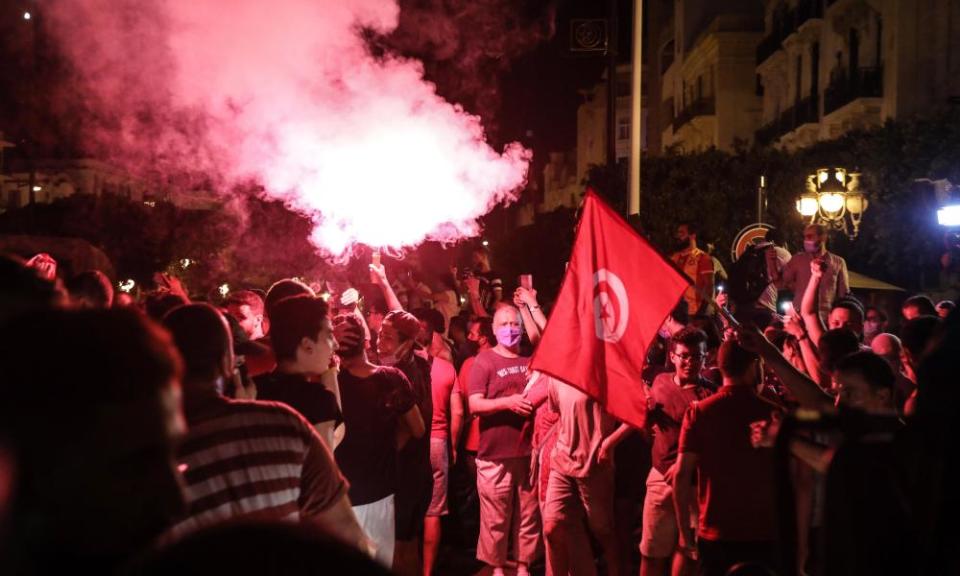Tunisia in turmoil as president purges officials and seizes judicial power

Tunisia’s president has launched a purge of senior officials, including prosecutors and judges, and taken on judicial powers, days after overthrowing the prime minister and imposing emergency law.
Kais Saied’s crackdown has dragged the country deeper into uncertainty days after its elected parliament was suspended for a month in a shock move that brought a decade of faltering democracy to a sudden halt.
The actions of Saied, a relative newcomer to politics, have been widely labelled a coup, and there are fears that the north African state could end up with the sort of autocratic regime that ruled it for decades until the Arab spring.
Tunisia, where the revolutions began in 2010, had clung to hard-won democratic gains made during years of economic and political instability. Their abrupt end, and the muted response from inside the country and around the Middle East, has stunned proponents of the uprising and the transition to democracy.
“This was the last poster child of the Arab spring,” said Suha Rached, a teacher from Tunis. “I don’t know what to feel now. It’s not even clear if it was worth it.”
Saied’s moves followed protests by Tunisians who are fed up with years of economic malaise – made worse by one of Africa’s worst Covid-19 outbreaks – and political paralysis.
Related: Kais Saied: the ‘Robocop’ president accused of launching Tunisia coup
Across the country, reactions have been largely low key. Mohammed Ali, 33, a resident of Ben Guerdane, said he and people he knew were in favour of the takeover.
“I think what happened is good,” he said by phone. “I think that’s what all the people want.” He railed at the country’s biggest party, Ennahda, which he said had failed to improve the lives of the country’s citizens. “Everyone is fed up with them,” he said. “Ennahda help only themselves.”
He also said he did not believe true democracy existed anywhere, although he took part in the revolts that resulted in the country’s former dictator Zine al-Abidine Ben Ali fleeing the country in January 2011.
Lamia Farhani, a lawyer in Tunis, was angered by the suspension of parliament. Like many other families, she had a personal stake in the revolution. Police killed her brother, Anis, the day before Ben Ali fled. Her organisation, the Association of Families of Martyrs and Wounded of the Revolution, compiled details of all those killed and wounded during clashes at the time.
She said she saw this crisis coming. “We called before for all parties to reform. The first step was to stop the humiliation of parliament. We rejoiced for Kais Saied on Sunday,” she said. “But the method affected the gains of the revolution.”
Farhani said this week’s developments did not mark the end of Tunisia’s experiment with democracy. “The Tunisian people will remain in control,” she said. “The Tunisian people were the first to revolt in the region and inspire the rest of the people. The worst democracy in the world remains better than the most just dictator.”

 Yahoo Finance
Yahoo Finance 